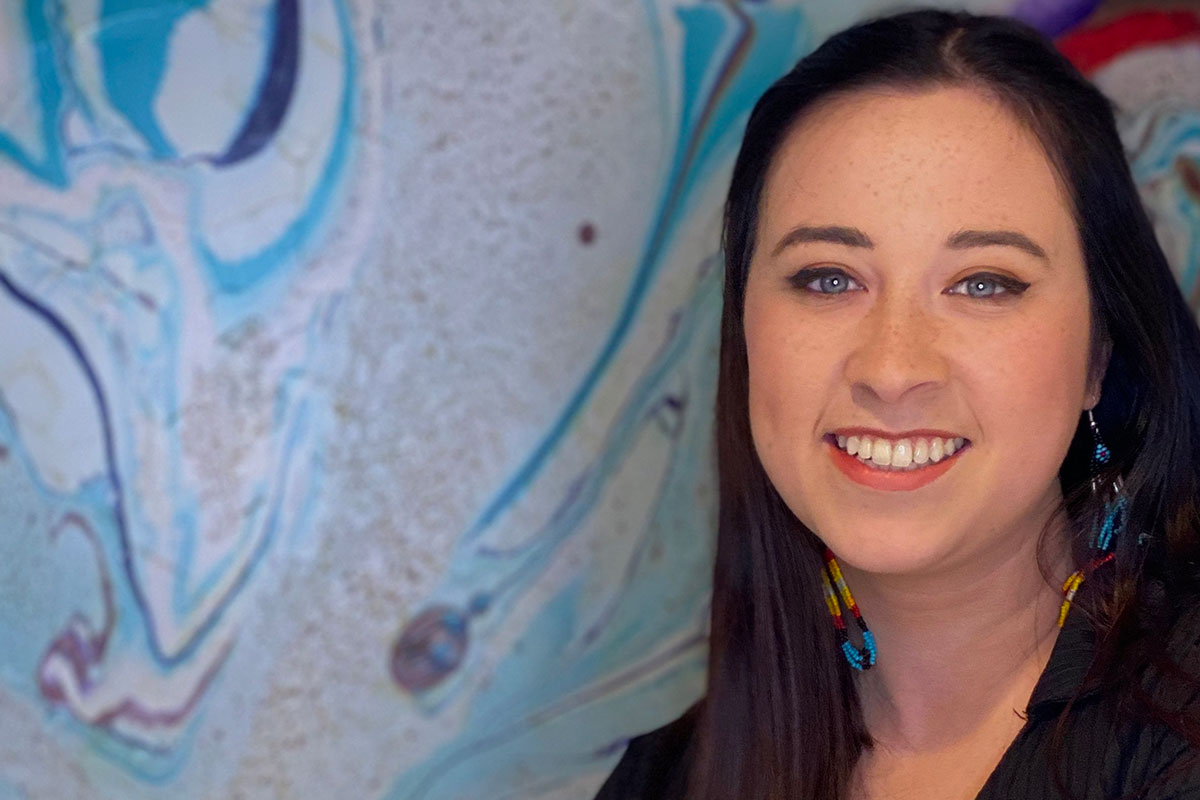
CBC: Anishinaabe U of M student building portable device to detect breast cancer earlier
The earlier breast cancer is detected, the more treatable it is. But for remote communities here in Manitoba, and some countries around the world, that early detection is out of reach.
A University of Manitoba graduate student in the department of physics is working on an easy-to-use portable device to help people in remote communities detect breast cancer before it becomes a death sentence.
Gabrielle Fontaine, an Anishinaabe student from Sagkeeng First Nation, about 100 kilometres northeast of Winnipeg, is working on the device that uses microwaves to detect the disease.
Her research has shown some lower and middle-income countries that have lower rates of breast cancer have higher mortality rates, and that’s because there’s a lack of early detection.
“If you don’t have access to that early detection like a lot of women do … then it’s more difficult to treat this cancer once it is detected,” Fontaine said.
“I immediately thought it would be beneficial to also use this in northern communities and reservations here in Canada that don’t have the same access to medical facilities like we do here in the city.”
Read the full CBC story.






